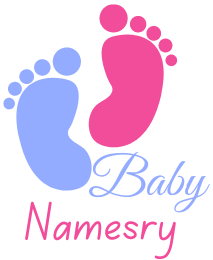10 Sentences That Will Get You Ahead of 91% of People

Success isn’t always about intelligence, luck, or talent. More often, it comes down to how you communicate—what you say, how you say it, and when. A few well-placed sentences, spoken with the right tone and intention, can open doors that effort alone sometimes can’t.
The difference between average and exceptional often lies in language.
Not big words. Not loud words. But smart, self-aware words that show maturity, presence, and control.
Sentences That Will Get You Ahead of 91% of People
“I was wrong about that. Thank you for pointing it out.”
Most people can’t admit when they’re wrong. Ego gets in the way. But being able to own your mistake without crumbling under shame is a major sign of emotional intelligence—and instantly earns respect.
This sentence signals maturity. It shows you’re not threatened by being corrected. You’d rather grow than protect a fragile image. That sets you apart from people who double down, deflect, or argue their way out of accountability.
It also disarms tension. People expect defensiveness. When you meet them with grace instead, it diffuses ego clashes and invites collaboration.
Admitting you’re wrong doesn’t weaken your authority—it strengthens it.
“I don’t know, but I’d love to find out.”
Pretending to know everything is exhausting—and easy to see through. In contrast, being open about not knowing something, without shame, shows confidence and curiosity. Two things that leaders, mentors, and friends love to see.
This sentence tells others you’re teachable, self-aware, and focused on truth—not image. It shows humility and initiative.
Most people stop at “I don’t know.” Adding “but I’d love to find out” flips the moment from limitation to momentum. That’s rare.
Growth-minded people always outperform know-it-alls in the long run.
Read More: 15 Secrets To Instantly Boost Your Confidence
“What can I do to help?”
This question is simple—but incredibly powerful. Instead of waiting to be told what to do, you offer yourself. You show up as a team player, a solution-seeker, a leader.
Whether you’re in a meeting, relationship, or conflict, asking this question flips your energy from passive to proactive. It also communicates emotional maturity: you’re not just thinking about yourself—you’re invested in progress.
People remember those who make things easier, not harder. And being helpful—without being asked—is a trait that puts you on everyone’s “I want to work with them again” list.
Support is a silent form of leadership.
“You were right—and I appreciate you for it.”
Giving credit is a skill. But most people struggle with it because their ego resists being outshined. Telling someone they were right isn’t just generous—it shows you’re confident enough to celebrate others.
This sentence deepens trust. It tells people you’re not competing—you’re collaborating. You recognize and value the contributions of others, which encourages loyalty, openness, and mutual respect.
It also shows you pay attention. You remember what others said. You see the full picture.
Acknowledging someone else’s accuracy or insight doesn’t dim your light—it expands the room.
“That’s on me—I should’ve handled it differently.”
Taking full responsibility without flinching is a leadership-level move. No excuses. No finger-pointing. Just truth.
Most people try to share blame, spin stories, or minimize the damage. But this sentence creates trust because it shows ownership. You’re not trying to look perfect—you’re trying to be accountable.
It also signals emotional control. You’re secure enough to say, Yes, I dropped the ball. But here’s how I’ll clean it up. That turns a moment of failure into a display of strength.
The fastest way to build trust? Own your part. Loudly, clearly, and humbly.
Don’t Miss: 12 Habits That Damage Your Brain (Without You Realizing It)
“Here’s what I’ve learned from this experience.”
Reflection is a superpower most people ignore. Instead of just reacting, successful people pause and extract the lesson. That’s what this sentence does—it turns a situation into a stepping stone.
Whether it’s a win or a failure, being able to articulate what you’ve learned shows emotional maturity, self-awareness, and growth. It frames your mindset as intentional, not reactive.
It also makes others take you more seriously. You’re not just moving through life blindly—you’re learning, adjusting, and evolving in real time.
Growth-minded people lead the room—even without a title.
“You might be right—can I think about it?”
Not every disagreement needs to be settled on the spot. This sentence shows restraint, open-mindedness, and emotional regulation. You’re not arguing for the sake of winning—you’re processing for the sake of clarity.
Most people rush to defend their point of view. You, on the other hand, leave space for better ideas to land. That makes you approachable, thoughtful, and trustworthy.
Even if you don’t end up agreeing, people will respect the fact that you listened, reflected, and responded from a grounded place—not a defensive one.
You don’t need the last word. You just need the right one.
“I appreciate your honesty.”
Let’s be real—honest feedback can sting. And most people respond by getting defensive or retreating. But if you can pause and say this sentence, you’re already ahead of 91% of people.
It tells others: I’m safe to talk to. I value growth more than ego. You can be real with me. And in return, people trust you more. They open up. They give you the feedback others never hear.
That kind of openness is rare—and deeply respected. It fast-tracks trust, deepens relationships, and keeps your growth curve steep.
You don’t have to love what they said—but appreciating it is next-level maturity.
“Thank you—for your time, your help, your effort.”
Gratitude is the easiest way to stand out. Most people rush past contributions. But those who pause to say thank you—and mean it—leave a mark.
People want to feel seen. Appreciated. Valued. When you acknowledge their time, energy, or thoughtfulness, it strengthens the relationship instantly.
This sentence also works in leadership. Appreciated people do better work. They trust you more. They want to support you again.
You’ll never lose by thanking people. You’ll only lose by taking them for granted.
You May Like: 10 Traits To Become a Respected Person in 2025
“No.”
Sometimes, the most powerful sentence is just one word.
Saying “no” with clarity and confidence sets boundaries. It protects your energy. It shows you have priorities—and that you respect them. Most people say “yes” out of guilt, fear, or the need to please.
But leaders—true, grounded leaders—know how to say no without apology or explanation. Not rudely. Just firmly and with grace.
Every time you say “no” to something that drains you, you say “yes” to something that aligns. And that’s how you grow, stay focused, and build a life you actually want.
Final Thoughts: Speak Less, But Speak Powerfully
You don’t need a bigger voice to get ahead—you need sharper sentences.
The right words, said at the right time, show confidence, character, and clarity. They separate you from the crowd not by volume, but by substance.
Start using these sentences. Not as scripts—but as habits.
They don’t just impress people—they reshape how you see yourself.
And that’s what gets you ahead. Quietly. Consistently. Authentically.
Frequently Asked Questions (FAQs)
- Do these sentences work in both personal and professional settings?
Absolutely. These phrases build trust, respect, and emotional intelligence—skills that strengthen any relationship.
- Will using these make me sound scripted or fake?
Not if you mean them. Authenticity is key. Use them when they fit naturally, and people will feel your sincerity.
- How do I remember to say the right thing in the moment?
Practice. Pause before responding. Get used to replacing reactive talk with reflective language. It becomes easier with repetition.
- Can just one sentence really make a difference?
Yes. The right sentence at the right time can shift conversations, relationships, and opportunities. Words are leverage.
- What’s the best one to start with?
Start with: “I was wrong about that—thank you for pointing it out.” Owning your mistakes confidently sets you apart immediately.






